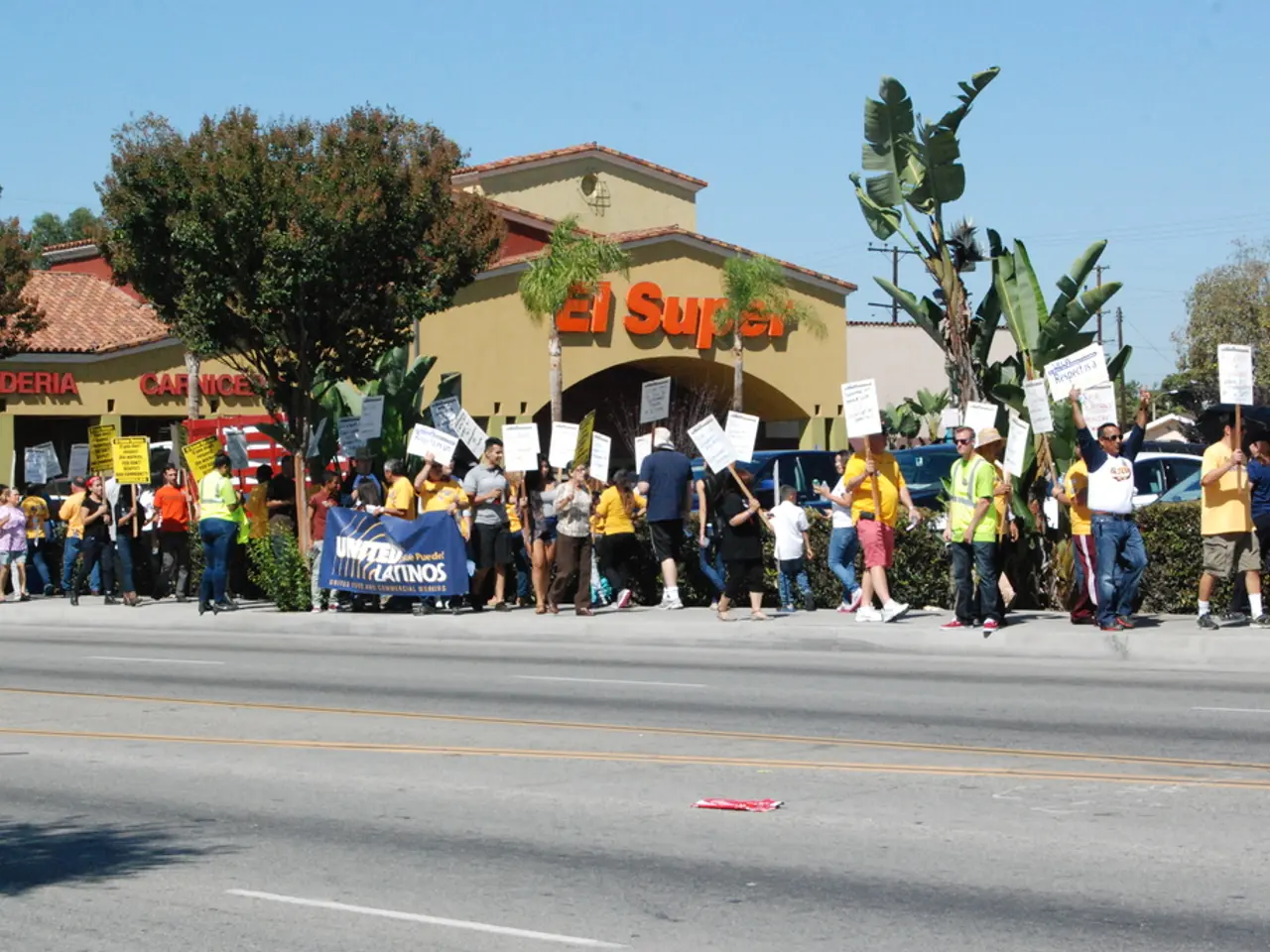Massive German Voting Results Lead to Merz Presiding over a More Conservative Administration
In the early February 2025 election, Germany witnessed significant changes in its political landscape, with the conservative CDU/CSU alliance, led by Friedrich Merz, emerging as the largest group with 28.5% of the vote. Despite this, the party's vote share marked a second-worst result since 1949, falling far below the historic highs of Angela Merkel's era (41.5% in 2013).
The far-right AfD, however, saw a dramatic surge, doubling its vote share to 20.8%, achieving its best nationwide result and placing second overall behind CDU/CSU. The party gained particularly strong support in the former East German states, winning nearly a third or more of votes there and taking nearly all constituency seats in that region. The AfD also made gains in some western states, surpassing the SPD in second place narrowly in overall votes.
Post-election, AfD's popularity increased further, with some 2025 opinion polls placing it ahead of or on par with CDU/CSU, marking a historic rise of the far-right in German politics. The election ended the "traffic light" coalition of SPD, Greens, and FDP, triggered by internal government conflicts, notably the dismissal of the Finance Minister.
With CDU/CSU leading and AfD surging, forming a stable government excludes AfD due to other parties' unwillingness to cooperate with them. This limits coalition options mainly to CDU/CSU with centrist or left-leaning partners. The socialist Left party improved its vote share to 9%, indicating a partial left-wing resurgence, while the new populist BSW narrowly failed to enter parliament.
The rise of AfD underlines significant political polarization, especially between former East and West Germany, reflecting ongoing social and economic divides. The Protestant and Catholic Churches, along with two dozen other Christian denominations, called on their members to vote for parties that showed Christian compassion, in a clear plea against the AfD.
The German Evangelical Alliance, along with other Christian denominations, did not issue a clear call for voting for specific parties in the recent election. Among evangelical Christian voters, there is a division of opinion regarding the AfD, with some viewing it as the only non-woke option defending certain Christian values, while others consider its xenophobic and ultranationalist overtones too close to Nazi Germany's past.
The recent election results did not indicate a clear shift in the religious voting patterns among Germans. The #TogetherInThisMission campaign, a sustainability challenge at Evangelical Focus, invites those across Europe and beyond who are committed to their mission. The specific details of the campaign, including its goals and objectives, are available on the Evangelical Focus website.
As Germany navigates these political shifts, the need for honest and respectful conversations in the midst of societal polarization, aided by social media, has been emphasized by Frank Heinrich of the German Evangelical Alliance. Committed Christians have been urged to analyze candidates' character beyond simple campaign slogans. The joint work of the two main parties on the right and left, both with strong pro-European convictions and united by their support for Ukraine and rejection of the new Trumpism, could facilitate the desired stability.
References: [1] BBC News, "Germany election: Merkel's party suffers worst result since 1949," 23 February 2025, https://www.bbc.com/news/world-europe-56748709 [2] The Guardian, "Germany election: Alternative for Germany surges to second place," 23 February 2025, https://www.theguardian.com/world/2025/feb/23/germany-election-alternative-for-germany-surges-to-second-place [3] Deutsche Welle, "Germany election: CDU/CSU regains leadership, but with reduced dominance," 23 February 2025, https://www.dw.com/en/germany-election-cdu-csu-regains-leadership-but-with-reduced-dominance/a-57727782
- Policy-and-legislation discussions in the aftermath of the February 2025 German election are expected to center around the rising influence of war-and-conflicts and general-news issues, given the significant shifts in the political landscape, especially the surge of the far-right AfD party.
- As the German political parties navigate the post-election landscape, there is a growing focus on the politics of coalition building, with the conservative CDU/CSU leading, but the unwillingness of other parties to cooperate with the far-right AfD limiting coalition options to mainly CDU/CSU with centrist or left-leaning partners, further highlighting the ongoing divisions in German politics.








